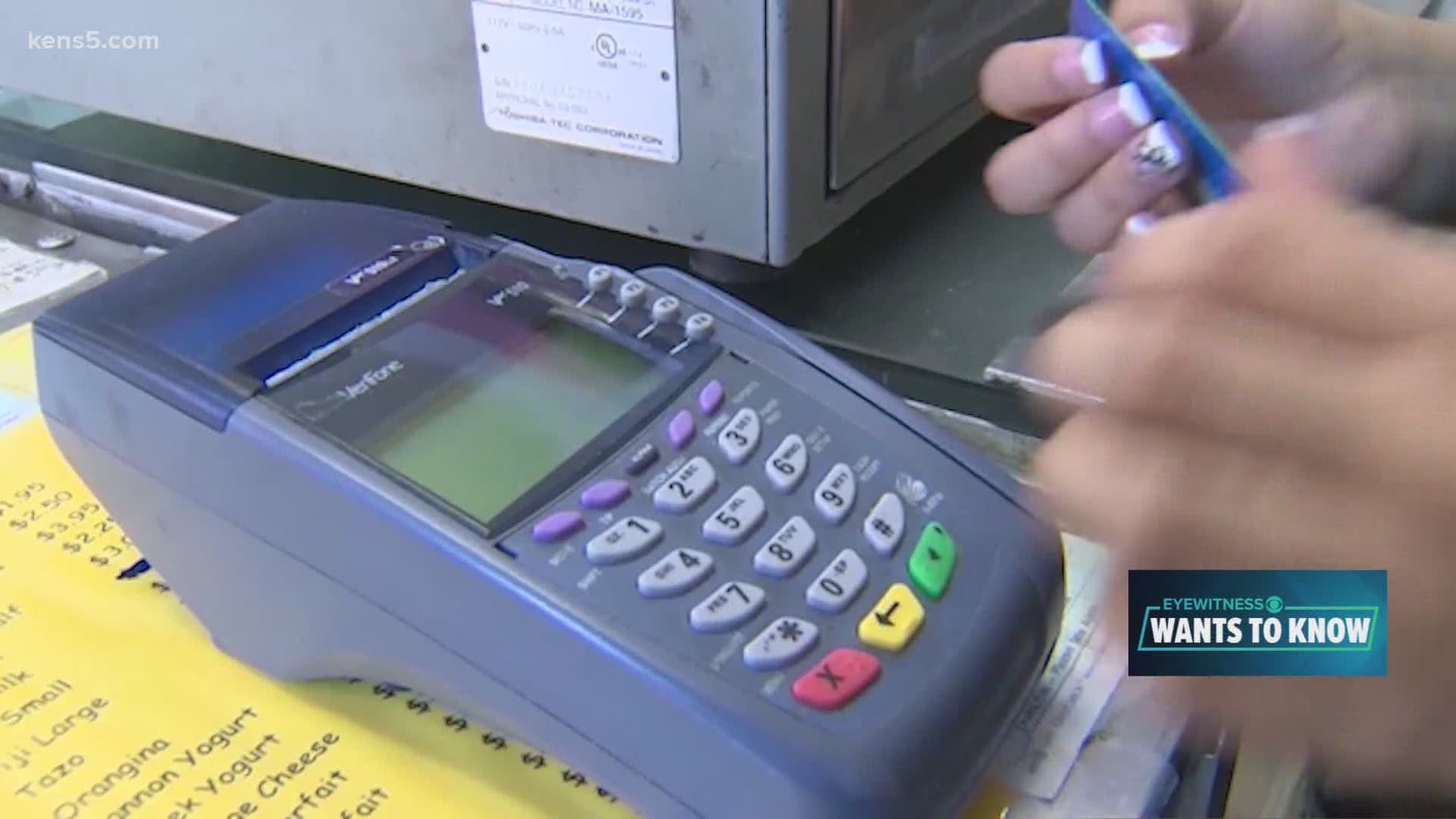SAN ANTONIO — Many people are paying for items they did not buy.
“Credit card fraud reports spiked by 104 percent,” said Greg Mahnken, a credit industry analyst with Credit Card Insider. “Now, that may not sound like a lot, but from 2017-2019, credit card fraud reports only grew by 27 percent. So, it’s a pretty significant spike.” See the full study here.
New account fraud is the quickest growing area.
“That’s when someone opens a new credit card account or line of credit in your name and then they rack up a big bill and you’re on the hook for it,” Mahnken said.
There are three steps to take to prevent it from happening to you. The best part is, they are all free.
First, be careful with your credit information.
“Unfortunately, people in 2020 are still, you know, giving their credit card information on the phone without really knowing who’s behind the phone, or, you know, going to sketchy gas stations or going to sketchy websites and putting their credit card information there,” said Elias Bou Harb, an associate professor of Information Services and Cyber Security with UTSA. “Be extremely vigilant.”
Next, check your credit score regularly. Your score will vary, but look for one big indicator there is fraud:
“A little bit of fluctuation each month or each time your score updates is normal,” Mahnken said. “But major swings without a major change in your financial landscape should be a big red flag.”
The three major credit bureaus, TransUnion, Experian and Equifax, are allowing people to check their credit scores for free weekly until April 2021. No need to do it that much, though. Scores update monthly. After April 2021, you can still get a free report from each credit bureau once a year at annualcreditreport.com. Here is how to continue to keep a close watch on your credit score and still not pay:
“You can just pull one from each bureau every four months,” said Mahnken. “The data between all three credit bureaus will be similar, if not identical.”
Plus, put a freeze on your credit reports. That will stop anyone from trying to open credit in your name.
“The good news is that you can unfreeze your cards temporarily or permanently very quickly online, but you’ll need to through all three credit bureaus,” Mahnken said. “You can’t do just one.”
Freezing your card does not affect your credit score or the ability to use your credit cards, but that freeze will help keep crooks from melting down your bank account. You will have to unfreeze your credit when you apply for a loan, mortgage, or credit card. Each credit bureau will issue you a PIN number you will need to give to unfreeze your account. Make sure you do not misplace it.
Liability differs on credit and debit cards if you spot fraud. You could be liable for up to $50 for fraudulent credit card purchase under federal law. Yet, Mahnken said almost every major credit card issuer offers zero liability for fraudulent purchases if you report it in a timely fashion.
It is different for a debit card. You could be liable for between $50 and $500 dollars under the Electronic Funds Transfer Act if you report the fraud after more than two days after it appears on your statement. Mahnken said the amount of fraudulent purchases on a debit card you are responsible for depends on your bank’s policy. He suggested checking your debit card account every two days so you can always report fraud in a timely manner.
Here are other tips on dealing with credit card fraud.
If you have a concern or question for Eyewitness Wants To Know, email us at ewtk@kens5.com or call us at 210-377-8647.

